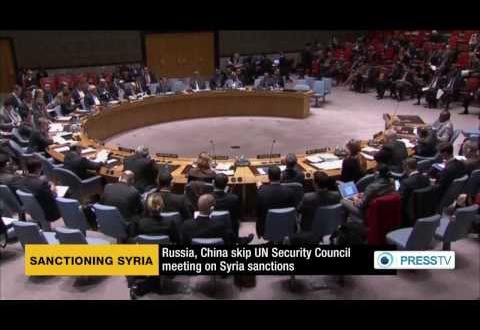India may be pushing hard to get into the UN Security Council, but it hasn’t stopped New Delhi from seeing this global high table as a high-value talk-shop, which is consistently failing to provide global solutions.
In a statement remarkable for its candour, India’s top UN diplomat told the body that “democratic, inclusive and transparent” approaches are best found outside the Council. Speaking at a Council debate on peace and security challenges of small island developing states (SIDS), Permanent Representative Asoke Mukerji said in dealing with their problems, .
it is clear that effective international cooperation on the concerns has been most viable outside the UN Security Council where a democratic, inclusive and transparent approach” can be taken.
Nevertheless, India has stepped up its efforts to move on the reform process. But it’s facing significant challenges to its over-a-decade bid to reform the UNSC. The G-4 (India, Germany, Brazil and Japan) are trying to get a text-based negotiation going in the UN General Assembly, but with limited success.
The new facilitator of the inter-governmental negotiations (IGN), Courtenay Rattray of Jamaica, has promised a working text which would be the basis for international negotiations on how to reform the UNSC.
Rattray’s efforts have been challenged by strong headwinds from China. In March, Rattray shared a framework document in the General Assembly which is supposed to segue into a negotiating text.
China’s ambassador, Liu Jieyi, opposed the text. Since then, China has mounted a strong diplomatic offensive against text-based negotiations in various capitals of the world, either through demarches or by visiting various capitals in the world – according to sources they have been very active in African capitals and among the Pacific islands — to “sensitize” them about the Chinese position. Diplomats from different countries said China wants most countries to go slow on these processes.
China is using IOUs and other means to stall this process. While India might play a better game, it doesn’t have deep pockets China can command. Neither the US nor Russia have helped the process along.
Second, the top contenders themselves are in a different position today. Germany, for instance, has manoeuvred for itself an interesting space – as the third country from Europe aspiring for the UNSC, its chances are slim.
But, as was demonstrated with the Iran n-deal, Germany doesn’t actually have to be in the UNSC because its already part of the high table. Brazil is locked up in a number of its own problems, which leaves Japan and India together fighting the reform battle.
China sees no reason to support either Japan or India in the UNSC. China has Pakistan and Italy, members of the 13-nation UfC group on its side. India believes that in a fair contest, it has the numbers. So what is happening now is a kind of shadow boxing between the two.
For instance, on Thursday, Mukerji praised the UN Convention on Law of the Seas (UNCLOS) as an effective mechanism – significant when you consider China’s blatant disregard for UNCLOS in its territorial disputes in the South China Sea.
India will be playing host to the Pacific Island states in a unique summit here next month. In October, India plans to hold the biggest India-Africa summit, both of which promise to add to the reform momentum. PM Modi has also written a letter to all 193 UN member nations, hoping to recreate the magic of the International Yoga Day.
ref:indiatimes






